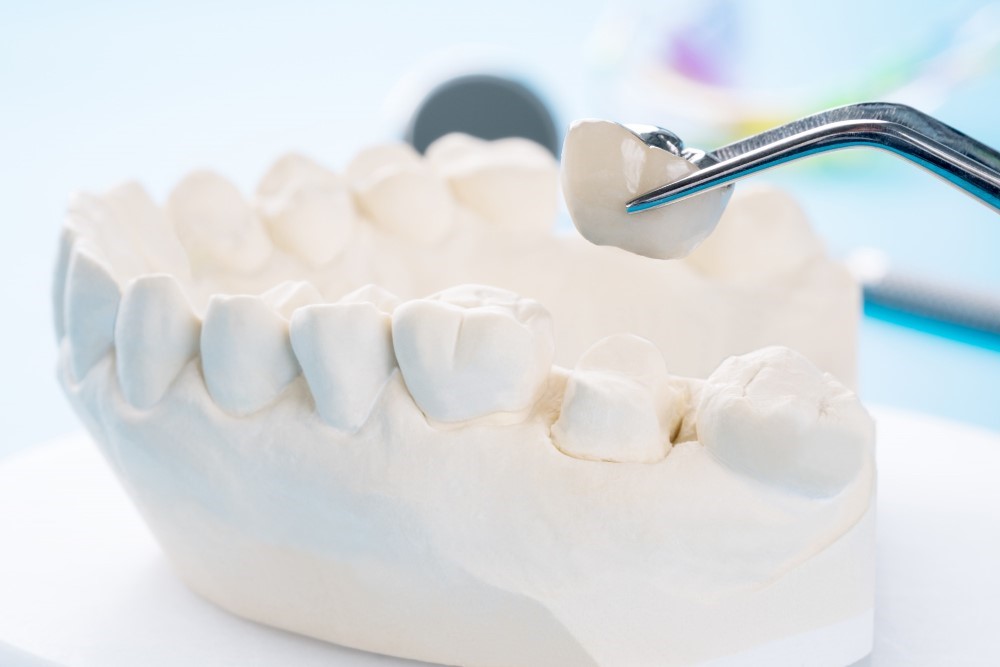Dental crowns offer comprehensive solutions to restore damaged teeth and enhance oral health. Unfortunately, many people remain unaware of the full spectrum of benefits of dental crowns. These crowns play a crucial role in both protecting teeth and enhancing their appearance. With ongoing advancements in dental care, understanding the long-term benefits of dental crowns is essential for making informed decisions about your oral health. They not only help in restoring functionality but also in boosting self-confidence.
Understanding Dental Crowns and Addressing Misconceptions
Dental crowns serve as custom-made covers designed to fit over teeth. They not only restore functionality but also improve aesthetics. Despite their effectiveness, misconceptions persist, deterring people from considering crowns. Let’s tackle some myths to ensure clarity.
First, some believe that crowns are too expensive and not worth their cost. However, crowns can prevent further dental issues, potentially saving significant future expenses. Another myth involves discomfort during the dental procedure. Modern dental practices use anesthetics to minimize any discomfort involved. Additionally, dental crown procedure steps are quick and straightforward, making the process less daunting.
Concerns about dental crown durability and lifespan are also common. While some think crowns wear out soon, they actually last many years with proper care. Addressing these misconceptions not only helps dispel fears but also allows individuals to make informed choices.
Further, dental crowns for cosmetic purposes often receive skepticism. Many doubt their natural look. Yet, with innovations in dental materials, crowns closely mimic the natural teeth. Such advancements ensure a natural appearance alongside functional restoration.
Procedure and Cosmetic Advantages of Dental Crowns
The dental crown procedure steps start with an examination by a dentist. The tooth is then shaped to create a perfect fit for the crown. Here’s a simple breakdown:
- Examination and Preparation: Your dentist inspects the tooth and takes X-rays to determine the extent of damage.
- Tooth Shaping: The tooth is reshaped to allow the crown to fit comfortably.
- Impression: An impression of the tooth is taken to create a custom crown.
- Temporary Crown: A temporary crown protects the prepared tooth while the permanent crown is being made.
- Fitting the Permanent Crown: Finally, the permanent crown is fixed onto the tooth.
This procedure might seem lengthy but is simplified with modern technology, providing a more efficient experience. Many fear the time involved, but dentists minimize the steps to ensure comfort and ease.
Moreover, the pros and cons of dental crowns should be considered to gauge their suitability. Benefits of dental crowns include their role in enhancing appearance. They significantly improve smiles and boost self-esteem. Compared to alternatives like veneers, crowns provide comprehensive coverage and protection.
Cosmetically, dental crowns drastically improve one’s confidence. With a brighter smile, everyday interactions become more pleasant. Choose crowns for an unmistakable enhancement in personal and professional lives. As confidence soars, so does social and job success.
Comparative Analysis and Maintenance of Dental Crowns
Understanding the difference between types of dental crowns available and other dental solutions like veneers or bridges aids in decision-making. Here’s a quick comparison:
- Crowns vs. Veneers: While crowns encase the entire tooth, veneers cover only the front. Dental crown benefits vs veneers depend on needs; crowns offer protection, while veneers are cosmetic.
- Crowns vs. Fillings: Fillings repair limited damage, while crowns restore severely damaged teeth.
- Crowns vs. Bridges: Crowns fit over individual teeth, whereas bridges replace missing teeth entirely.
Maintaining dental crowns involves proper oral hygiene. This includes regular brushing, flossing, and dental checkups. Consistent care significantly extends the dental crown durability and lifespan.
Also, be mindful of lifestyle choices. Avoid hard foods that may crack the crown. Limit sugary snacks to prevent decay around the crown. These simple steps ensure crowns stay intact for years.
Finally, modern materials and technology enhance crown effectiveness. Nowadays, crowns are designed for resilience and appear natural. This integration of innovation ensures both functionality and aesthetics improve dramatically. With the right care and technology, crowns serve as long-lasting dental solutions.
In essence, embracing the benefits of dental crowns means appreciating their role in dental health and aesthetics. With ongoing care and advancements, they can significantly uplift both oral health and self-esteem.
